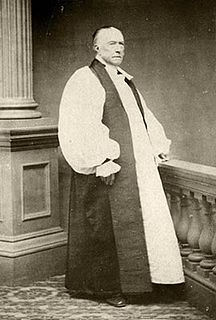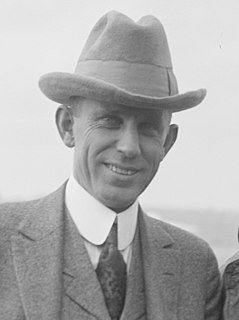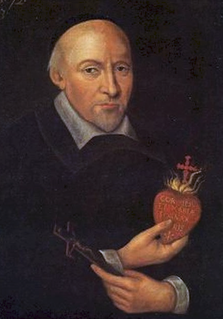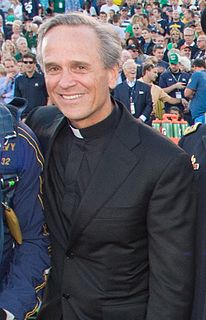A Quote by John Strachan
As a preacher of the Gospel, our late venerable Bishop must have been heard, to form an adequate conception of his superior excellence and commanding eloquence.
Related Quotes
All I can say is Bishop Jakes would not currently accept the designation of Prosperity Preacher or Word of Faith Preacher as an accurate description of what he believes currently. Now his ministry will have to bear that out. I'm not here to defend him or stick up for his various errors. And I don't want to minimize error that is significant. All I'm saying is that he, as of two weeks ago, would not accept those terms, in private conversation, as accurate descriptors of what he believes.
He that makes himself famous by his eloquence, justice or arms illustrates his extraction, let it be never so mean; and gives inestimable reputation to his parents. We should never have heard of Sophroniscus, but for his son, Socrates; nor of Ariosto and Gryllus, if it had not been for Xenophon and Plato.
There is something in the eloquence of the pulpit, when it is really eloquence, which is entitled to the highest praise and honour. The preacher who can touch and affect such an heterogeneous mass of hearers, on subjects limited, and long worn thread-bare in all common hands; who can say any thing new or striking, any thing that rouses the attention, without offending the taste, or wearing out the feelings of his hearers, is a man whom one could not (in his public capacity) honour enough.
Whenever you find a preacher who takes the Bible allegorically and figuratively...that preacher is preaching an allegorical gospel which is no gospel. I thank God for a literal Christ, for a literal salvation. There is literal sorrow, literal death, literal Hell, and, thank God, there is a literal Heaven.
While dwelling with pleasing satisfaction upon the superior excellence of our political institutions, let us not be unmindful that liberty is power; that the nation blessed with the largest portion of liberty must in proportion to its numbers be the most powerful nation upon earth, and that the tenure of power by man is, in the moral purposes of his Creator, upon condition that it shall be exercised to ends of beneficence, to improve the condition of himself and his fellow men.
Gandhi said 'One cannot do right in one area of life whilst he is occupied in doing wrong in another; Life is one indivisible whole.' This point of wisdom is profound. A commitment to excellence is not just reserved for a few select areas of your life - it must be reflected in everything you do. Your diet must reflect your commitment to excellence. Your physique must reflect your commitment to excellence. Your personal habits must reflect your commitment to excellence and your thoughts must reflect a commitment to excellence.
As Pope Francis says in Amoris laetitia, pastors must "make room for the consciences of the faithful, who very often respond as best they can to the Gospel amid their limitations, and are capable of carrying out their own discernment in complex situations. We have been called to form consciences, not to replace them" (no. 37). As for the former statement, we should only be afraid if the church is smaller because of our failure to welcome people and preach the Gospel in a way that touches their hearts.




































